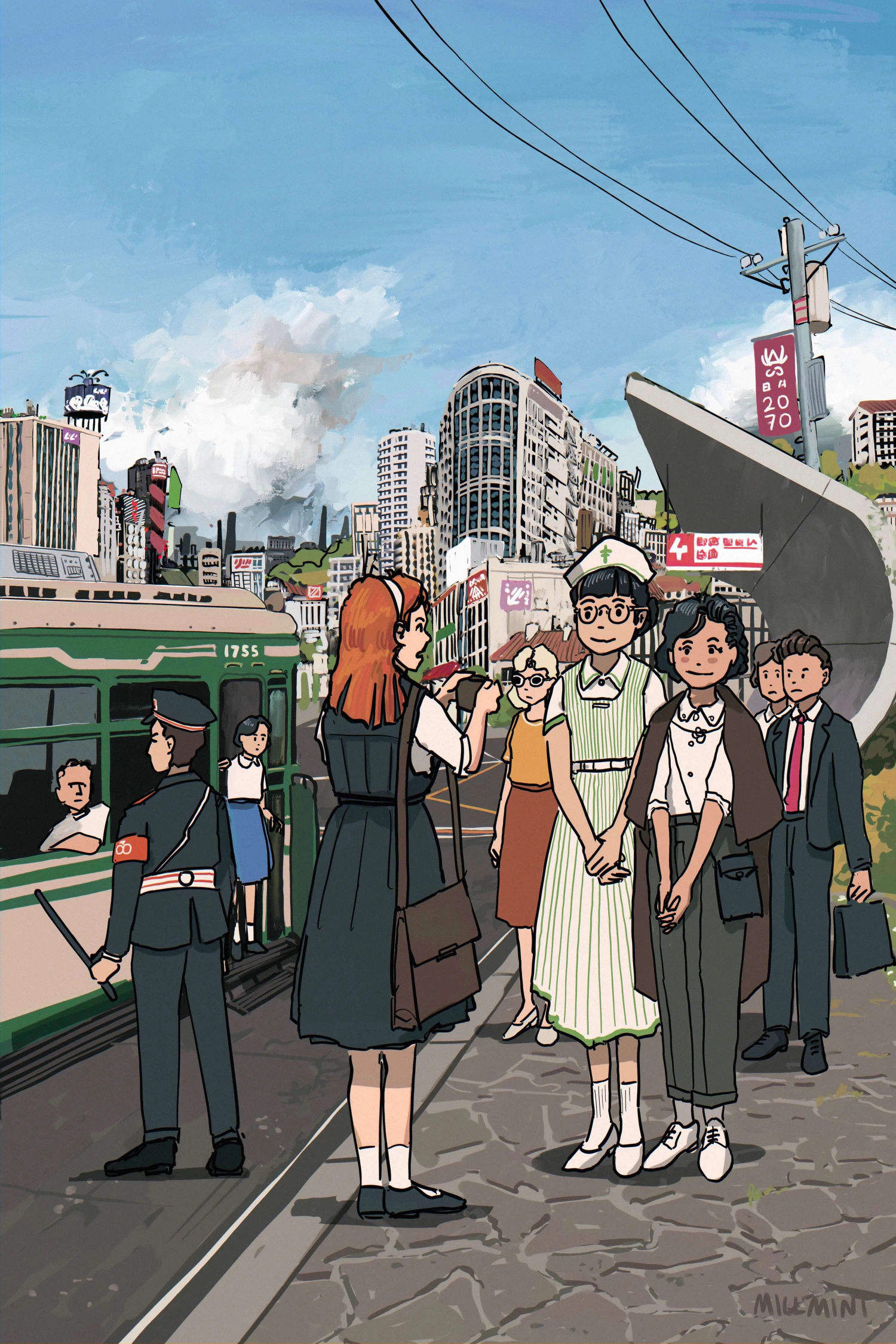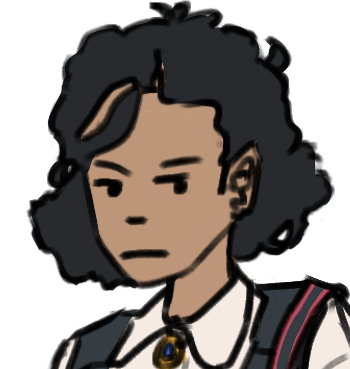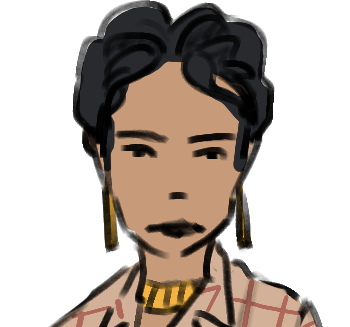NEW Story: Sunday Morning
A Brief Introduction to Vekllei

This article is not part of Vekllei canon. It may be old, obsolete or just a bit of fun.
Editor’s note: this article, while ready for reading, is still under construction.
Considering both the length and convoluted terminology that embroil this project, there was only so long I could carry on before people started getting lost. The truth of it is that Vekllei is not a particularly complex or difficult project to summarise, despite the snapshot “lore in scenes” approach that kneecaps a complete understanding. I’m just lazy.
In fact, Vekllei is not a particularly challenging idea. It is unique, but some days that’s about all it has going for it. The word itself — Vekllei — refers to both the landscape and the people of an island we know as Iceland. This project looks at that country and its people across a span of about fifty years, mostly between 2070 and 2120. As an alt-history, timelines diverge between our world and theirs in the 1940s, although Vekllei’s history is much older.
Vekllei is utopia, but Vekllei is not perfect. It is constructed under a framework of utopie concrète, where dreamlike landscapes and characters collide with the dirt and dysfunction of reality. To some people, the contradictions and imperfection of Vekllei society would disqualify it as utopia, especially in an orthodox understanding of the idea, but Western cultural orthodoxy is not the metric used by a Vekllei person.
Vekllei people instead use Vekllei cultural metrics, and to a Vekllei person it is the patina of things — its imperfections and tragedy — that recognise the beauty in life itself, as markers of both existence and usefulness. This cultural intuition is a central tenant of Upen, Vekllei’s nondenominational animism and universal spirituality.
Simultaneously, Vekllei is undeniably heavenly. It is a gorgeous country of spiritual satisfaction and earnest friendship. Your first day in Vekllei is a dizzying spiritual experience. The weight of the world seems to shift, and then rise off your shoulders. Colour and vitality disentangle themselves from injustice and consumption and pivot to meet you. Food is good and free, strangers are friendly and bursting with lively purposefulness.
Vekllei understands itself as a city-state. This colours a lot of how Vekllei people think of themselves. In practice, there are many distinct ‘cities’ — the Capital, Little Vekllei, Copette, Ro, Montre and Adouisneh are the largest of them — but they are not recognised as such or federated in Vekllei geographic lexicon. Vekllei is a single continuous neighbourhood, circling nearly the entire coast of their island. Vekllei is also the land on which they sit, which predates the country by millions of years and informs many principles of Upen, which go on to manifest in public policy.
Vekllei cities are almost entirely built according to a single architectural school, Newda, which manifests in many different ways but is almost always obviously a flavour of midcentury modernism. Water and concrete define Vekllei cities.
The Vekllei flag is an unornamented purplish red, known as the ‘Domestic Standard’. Internationally, they employ a highly decorated flag called the ‘International Standard,’ which features both the Oa national flower (and omnipresent symbol in every corner of society) and Vekllei logographic script, called Topet.
Vekllei has five language systems, which contribute to the single national language – also called Vekllei. There is spoken Vekllei, Topet (logographic Vekllei script), Rapotenne (name-script), Vekllei semaphore, and Potenne (hand-talk) or Upotenne (spirit-hand-talk). Potenne is a sign language used with or in place of speech, and Upotenne is a way of manifesting physical runes specifically.
Vekllei cities are very colourful, because colour has great meaning. You can construct sentences using only colour and shapes through Vekllei semaphore.
This sort of lifestyle is possible because of Vekllei’s abolishment of work, commodity and consumption. In the case of Vekllei, this means that people do not use money and work only for personal benefit, as both ways of actualising themselves and keeping useful or socialising. Not all work is equally difficult or interesting, but everyone must work in fairness. For some, that means as little as a few hours a week copy-editing neighbourhood newsletters. For others, they may work weeks without days off. The consequence of this is that value and products are valueless in any real sense, as post-scarcity relegates the functioning Vekllei economy to autonomous overproduction and waste.
The question of why people work is not an especially difficult one. In Vekllei, where money has not existed for a long time and generations are raised without it, basic premises of motivation have been reconsidered. Life in Vekllei is mostly a largely individual march towards actualisation, through several avenues of pleasure. There is the enjoyment of food and culture, the intimacy of love and marriage, the heritage in family and blood, and the power of work and professional legacy. Only a handful of these contribute to the pleasure of work, but in a society that has mostly done away with menial work through automation and advanced robotics, pleasure is mostly what you make of it. In Vekllei, this is called Product Socialism, an inaccurate nominer that describes both the bureau system of work and distribution and Vekllei’s fundamental syndicalism. In politics, it is called Sundress Municipalism.
The quality of life for almost any other person in today’s world, however, has declined slowly by nearly any metric. People are, on average, poorer and hungrier than they were fifty years ago. Various contradictions — in startling contrast to Vekllei’s own schisms — have left previously dignified superpowers in disorienting cycles of bloodshed and madness. In the U.S., a large number of confederate states have reasserted their sovereignty following the collapse of the Ford Motor Company and the Northrop corporation. Cultural reforms in Red China have left vast wings of the CCP disatissfied with current leadership, with whispers of a coup. Western Europe has rediscovered her reactionary heritage and indulged in a serious of increasingly authoritarian traditionalist movements, and the export economy of the Soviet Union has collapsed after the shift towards atomic fuels. Vekllei rejects millions of applications for asylum each year.
The circumstance of the world is only made more tragic by the relative peace and stability of Vekllei, and the simplicity and carefree lifestyle of the average Vekllei person. Vekllei has the most flowers per capita of any country in the world. The last fifty years has seen the melting of much of the poles and the the introduction of el nino summers and instant winters that wrack Germany, Austria, Italy, and much of temperate Europe. The Adriatic seems to see more gloom than mediterranean sun these days. The equatorial deserts of the world, Nevada included, are mere degrees away from unsurvivable. With temperatures frequently breaking 50C (125F) throughout the year, it thins the population of Southerners too old or too poor to avoid the heat. North Africa is a husk. There is no water and no food. There is a reason there are mass graves all across the shores of the Black Sea, and why Europe tastes the boot. There is a reason the southern African states are crumbling.
In Vekllei, with her extreme daylight cycles and polar latitude, the weather has improved significantly. Summers are warm enough to host outdoor activities for much of the season and winters are milder than previously, rarely dropping below freezing. Vekllei life, in its insular fashion, has been somewhat improved by the destabilisation of the climate. Lush temperate rainforests cover much of its lowlying basins, and rich volcanic soils spoil agricultural endevour in the warm seasons.
Vekllei’s current prosperity has enabled the country to embark on her final project. The benefits of industrialisation and contemporary post-scarcity are employed in a serious effort to reestablish localised, agrarian life built upon the unit of the community.
Vekllei understands the the achievements of industry as a liberationist tool to return to preindustrial, satisfying life. It is not as though the country will abolish three centuries of tremendous progress — quite the contrary, in fact. But understood through petticoat ideology, the marriage of labour and the ordinary person can only occur through self-satisfying, personal work. This is in contrast, one can suppose, to mechanised, industrial labour to which we owe our enormous wealth. To a Vekllei person, work is social, productive, creative and satisfying. The simple pleasures of agriculture; specialised craftsman and tradesman; artistry — these are the fruits only of a society that can afford them, since they necessitate the deindustrialisation of agriculture, factory manufacturing and mass media simultaneously.
So even though Vekllei is by all measures an industrial society; a land of helijets and plenty; the people of this country see automation as the deindustrialisation of society, at least culturally — a return to community employment, decentralised agriculture and tending of the land.
Vekllei is a fundamentally female country. This is what petticoat society means. There are plenty of men in it, and quite distinct social constructs for men and women exist in a way that distinguishes the country from traditional progressive projects, but the feminisation of the economy and politics remains. Vekllei economic gender theory understands masculinity as first and foremost a value to be consumed in industrial society, in a perverse sort of value exchange. Men are first commodified and then broken through work, killed in wars, are suffocated emotionally, and so forth. The very premise of manhood, as the 1950s understands it (which this world is very much immersed in) is not just a biological or social construct, but an economic one. As Vekllei progresses, and erases these identifiers of masculinity, men will become female first in an economic sense (in a process called economic feminisation), and will eventually become females socially also. These are gender constructs that are essentially still prescribed by traditional Vekllei values, but are tied to the deindustrialisation of the country. The perfect Vekllei society is one in which the man dies with the machine.
Although Vekllei is not a traditional egalitarian experiment, and is often a land of absurd contradiction in Western political tradition, Vekllei women enjoy a society built for them. Womanhood in the country is not defined by commodity or appearance, but by ideas the culture associates with womanhood — compassion, bravery, intelligence, grace, etc. They are defined not by their relationships or their economic circumstance, but by their friends, political opinions, ability, etc. The decommodification of society has also decommodified womanhood. Vekllei is not simply a good place to be a woman, but is in fact a female country.
Finally, you might have notices a certain set of recurring characters. The girl with short dark hair is Tzipora Desmoines, the character of utopia in this project. Her adoptive father, Baron, is bearded and wears half-framed spectacles. Her friend, Cobian, wears round spectacles and her hair in a ponytail. Their mutual friend, Moise, is heavy-set and has curly hair. Together, they represent a broad demographic of Vekllei people. Baron is descended from Nordic caucasians; vikings from Vekllei’s initial settlement. Tzipora and Cobian are descended from both inuits and Scandinavians, in the population explosion that followed Inuit settlement in the Danish territory. Moise is descended from Greek immigrants in the tide of immigration that followed the immediate postwar era. Although there are Vekllei people of colour, they make up a minority of the population.
Hopefully, this guide has helped to introduce you to the world in which Vekllei is situatated. I’m likely to expand in the coming days on this section, so stay tuned.
It is a world of nuclear power, gingham and moon colonisation wrapped in the aesthetic of the 50s/60s. There’s a lot of poverty and suffering in it, but also tremendous hope. Vekllei is utopia.

